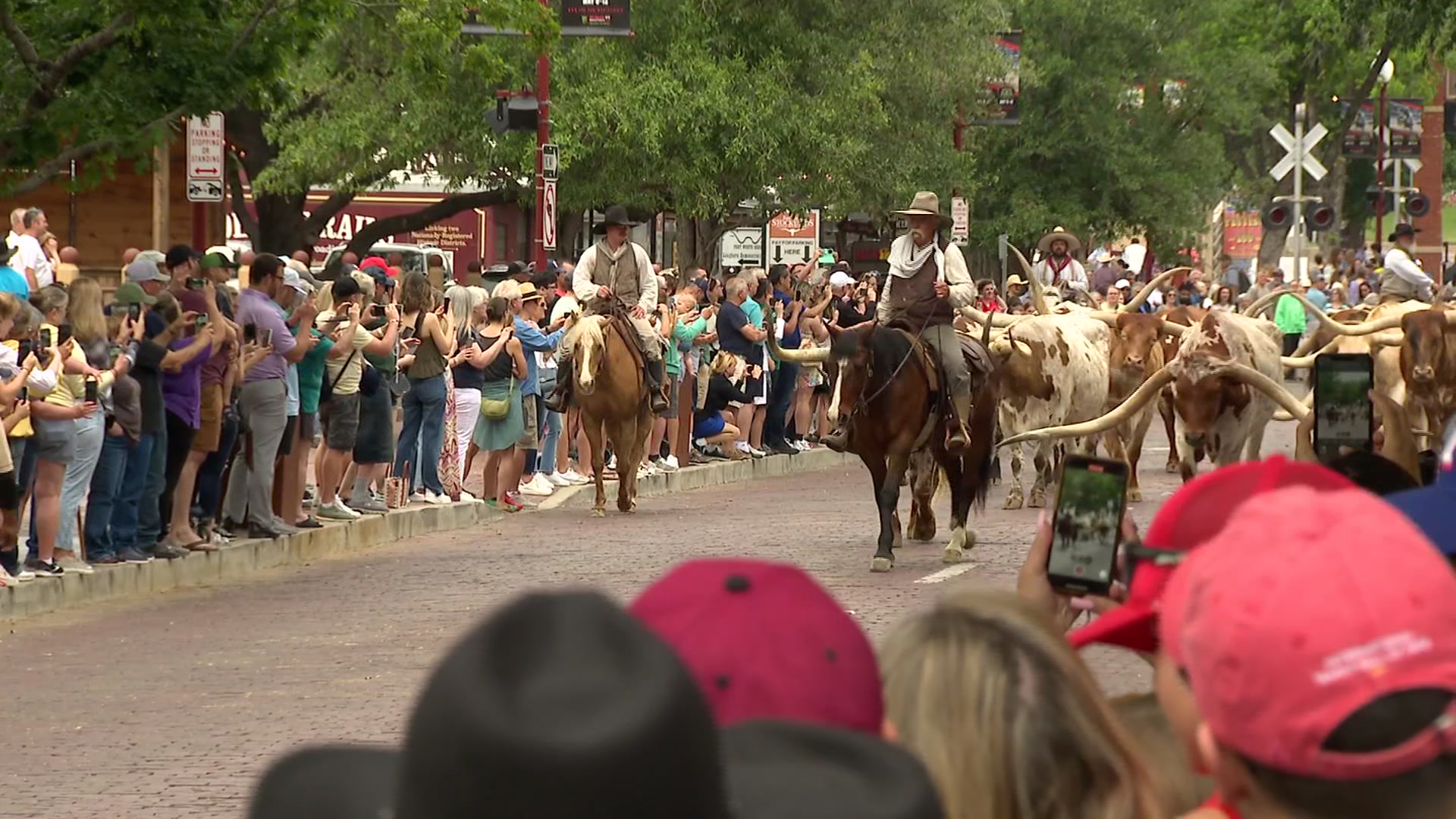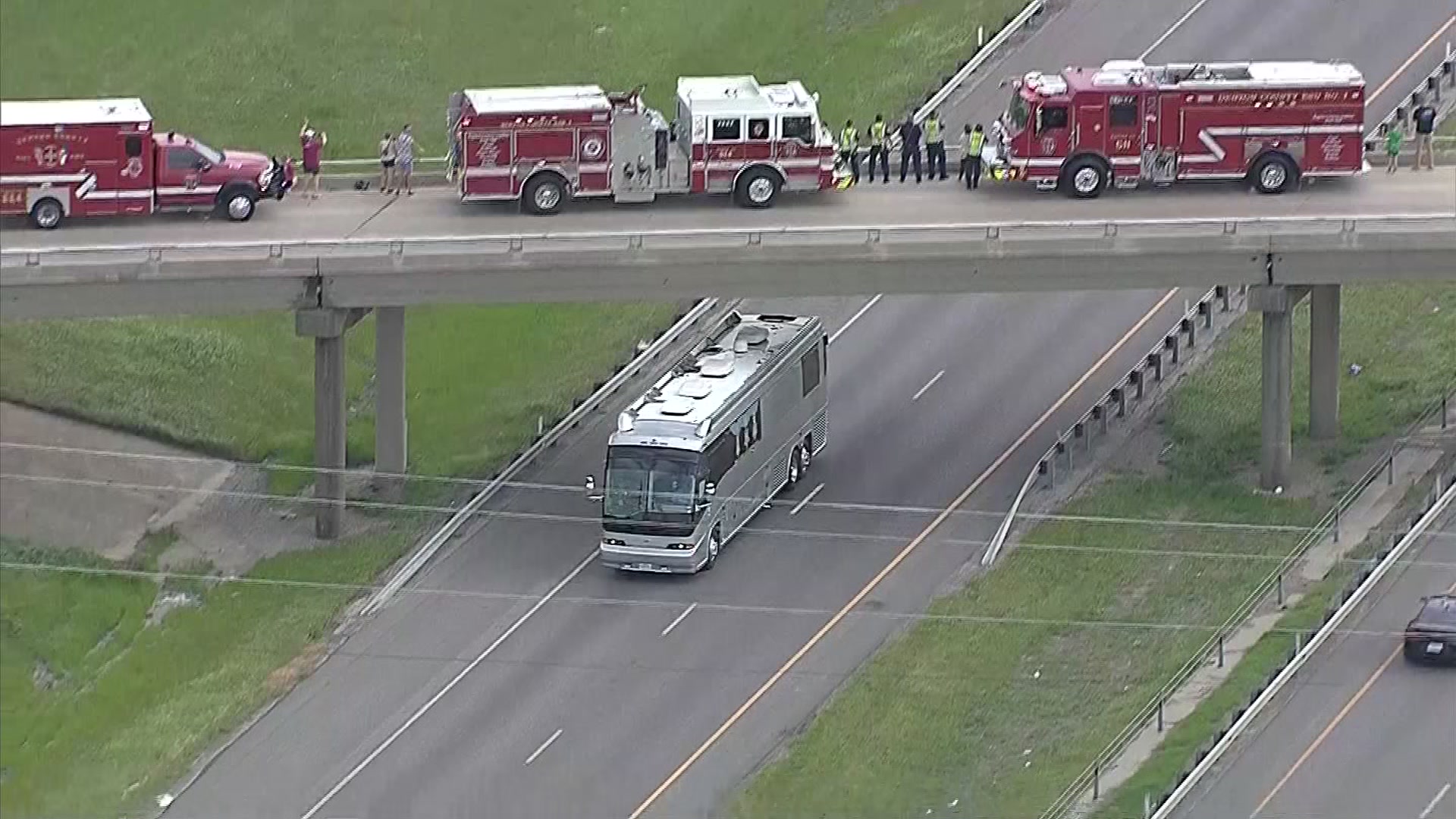As Maxine’s Cocktails closed its doors to the public for the third time this year, manager Jamie Pena said there was concern it might be for good.
“We have to pay on the building. We still have to pay the licenses. We still have pay utilities, things like that, that nobody takes into consideration,” Pena said. “We can’t pay something if we’re not making anything.”
Under Texas Gov. Greg Abbott’s executive order, which has been in effect since October, automatic reopening rollbacks are applied to a region after its hospital capacity is compromised of 15% or more COVID-19 patients for seven consecutive days. Rollbacks include reducing business occupancy from 75% to 50% and the closure of bars.
North Texas, which is considered to be part of Trauma Service Area E, reached the hospital capacity threshold on Thursday. County judges in the region were sent a letter Saturday morning from the Texas Department of State Health Services stating the occupancy changes would be effective that day.
“Additionally, all licensed hospitals in the Trauma Service Area are required to discontinue elective surgeries as set forth in Executive Order GA-31. The Health and Human Services Commission, the agency responsible for regulating hospitals in Texas, is separately providing notice directly to affected hospitals notifying them of the requirement to discontinue elective surgeries located in Trauma Service Area E,” the letter stated in part.
Pena said their bar has done everything it could to keep their customers safe. Temperatures are taken at the door, masks are required and there is hand sanitizer available at every table. Tables have been removed to meet the occupancy limit and the ones that remain have at least 6 feet of distance between them, Pena said.
Local
The latest news from around North Texas.
“This woman has worked so hard,” Pena said, referring to the bar’s owner. “She’s been in the business for almost 50 years. To have her business flushed down the drain, because we get blamed for COVID is just not fair.”
According to the Texas Alcohol Beverage Commission, 147 in Tarrant County have been reclassified as restaurants since June through new permits. Under Abbott’s executive order, those businesses would be subject to scaled-back occupancy but not full closure. As of this weekend, the TABC said 321 establishments within both Dallas and Tarrant counties remain 'bars'.
Pena said the bar did not have plans to apply for the restaurant permit.
“All the licensing is expensive. It’s another $1,000 just to get that going on top of the utilities, the rent, the liquor, everything else that we have to buy. Now we’re having to buy food and a food license? It just doesn’t work for us,” she explained. “We’re an older bar. We have an older crowd. They don’t want to come in and eat. They come in to play pool, have a beer, play darts.”
For Jennifer Mitchell, reclassification may be the only option if she wants her business to stay open. Mitchell is the owner of The Home Plate in Fort Worth. Its doors have also closed, but Mitchell said she’s applied to operate as a restaurant through the TABC.
“I didn’t really want to apply for it. I kind of feel like I sold my soul to the devil, you know? Taking that step and dealing with food. It’s not something I’ve ever wanted to add on to my plate, but I feel like it was my only option to stay open,” Mitchell said. “I have no choice. It’s either that or lose my bar.”
Like Pena, Mitchell said she has followed all of the guidelines to help slow the spread of COVID-19.
“I feel this industry is being extremely singled out. People aren’t stopping drinking. They’re just going to other places to drink. They’re having house parties to drink,” Mitchell said. “Not to throw other industries under the bus, but I get notifications from my child’s high school daily sometimes reporting up to seven cases a day of COVID. Those high school kids aren’t drinking in my bar, you know? The people that are having house parties, it’s an uncontrolled environment.”
Mitchell added, she understood the balance those who are making the decisions regarding COVID-19 and businesses must consider.
“If closing helps us do our part, if it helps saves lives... I’m all for it, but it’s not just bars at this point. It’s not just us that’s causing the spread of COVID and that’s pretty apparent,” she said. “Again, I stand by that if it helps save lives, but they need to help us to some extent because we’re real people with real lives and real families too.”
NBC 5 reached out to Abbott’s office several times Saturday for a comment, but we had not heard back as of this writing. On Thursday, a spokesperson sent the following statement:
"When a region’s hospital capacity is comprised of 15% or more COVID-19 patients for seven days in a row, there are protocols in place to automatically close bars and ratchet back openings to 50 % occupancy. A region can begin the process of reopening once they have stayed below that 15% COVID-19 patient threshold for seven days in a row.
"We’ve seen this work, as evidenced by the recent efforts in El Paso. The number of people testing positive in El Paso was 1,920 at its peak on November 5, today it is 545. The number of people hospitalized in El Paso was 1,108 patients on November 5, today it is 819. That’s a 26% reduction in hospitalizations and a 72% reduction in new cases in just a few short weeks, proving once again that these mitigation protocols work, but only if they are enforced.
"Governor Abbott continues to urge all Texans to follow the safe practices they mastered in the summer to slow the spread. We’ve slowed the spread before, and we will do it again while we await the arrival of vaccines later this month. In the meantime, the state is swiftly distributing the new anti-body therapeutic medicine to treat Texans who get COVID-19 and aid in reducing hospitalizations."
*Map locations are approximate, central locations for the city and are not meant to indicate where actual infected people live.



